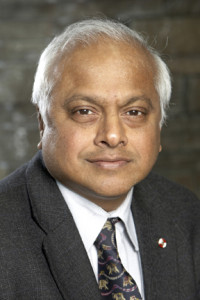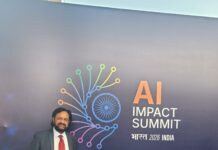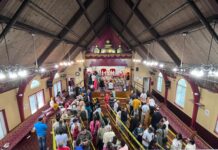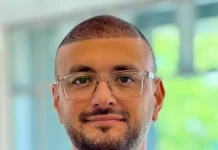
LAS VEGAS: The 35th annual convention of the Association of Kerala Medical Graduates (AKMG) was held in grand style at the the Bellagio Resort & Casino, Las Vegas,from August 14 to 16. It was attended by 300 AKMG members and their families.
Dr Salim Yusuf, a Professor of Medicine, McMaster University and incoming President of the World Heart Federation, was the chief guest and keynote speaker.
“His groundbreaking series of population studies, clinical trials and discoveries involving over a million subjects, in 86 counties have revolutionized the prevention and treatment of heart disease and transformed the landscape and practice of cardiology worldwide, as few physicians have ever done”, said Dr Enas Enas, a fellow cardiologist, researcher, and past President of AKMG while introducing Yusuf at the AKMG banquet. Parameswaran Hari, the President of AKMG said “We at AKMG are immensely proud of his contributions to science and humanity.”
In his keynote address Dr Yusuf highlighted the public health chalenges in India and Kerala, especially the heightened risk of heart disease based on his own ongoing PURE (Prospective Urban Rural Evaluation) study. This largest ever population study enrolled approximately 200,000 subjects including 30,000 from india and 5,000 from Kerala. He urged AKMG members to rise to stem the tide of non-communible diseases, such as heart disease and diabetes in our homeland as an organized body, representing 3,500 physicians of Kerala heritage in North America.
When President Eisenhower suffered a heart attack in 1955, there were no effective medicines for heart attacks and the mainstay of his treatment was just strict bed rest. He was not allowed to sit up in a chair for 28 days, or walk until 44 days. When he was finally discharged on day 48, his only prescription was another 90 days of bed rest at the White House.
The in-hospital mortality rate was 50% and the prognosis of the survivors was one of doom and gloom. In sharp contrast, a heart attack today is treated with immediate opening of the coronary artery with medicine or stent. Today, most heart attack patients are allowed to sit up in chair the same day, walk in the hallway the next day or climb stairs, go home on the third day and return to work in two weeks. Further, patients receive many life-saving medications such as aspirin, ACE inhibitors, beta blockers, clopidogrel, and statins to name a few. Notably, as a result, the 30-day mortality from heart attacks has plummeted from 50% to 10%.
Yusuf is credited with several definitive studies that provided the ultimate evidence for government approval and global use of many of these and other medicines. Millions of lives worldwide have been saved as a result, and will continue to be saved for generations to come.
Born as a village boy in Kottarakara, Kerala, Yusuf obtained his MBBS from St. John’s Medical College, Bangalore.
In 1976, he obtained a DPhil from Oxford University, where, he developed the concepts of large, simple trials, and meta-analysis. He immediately validated these concepts, by conducting a series of a large multinational, randomized double blind clinical trials leading to game changing discoveries.
In 1992, Yusuf moved to McMaster University in Canada as the Director of Cardiology. The next year, he founded the Population Health Research Institute or PHRI and built it into the foremost population research center in the world. He now heads a research team of 250 individuals, which include 35 career researchers and 34 research fellows.
As an inspiring leader and President-elect of the World Heart Federation, Yusuf is now spearheading an Emerging Leaders program in 100 countries with the aim of reducing the global burden of cardiovascular disease by 50% within a generation.
India Post News Service






